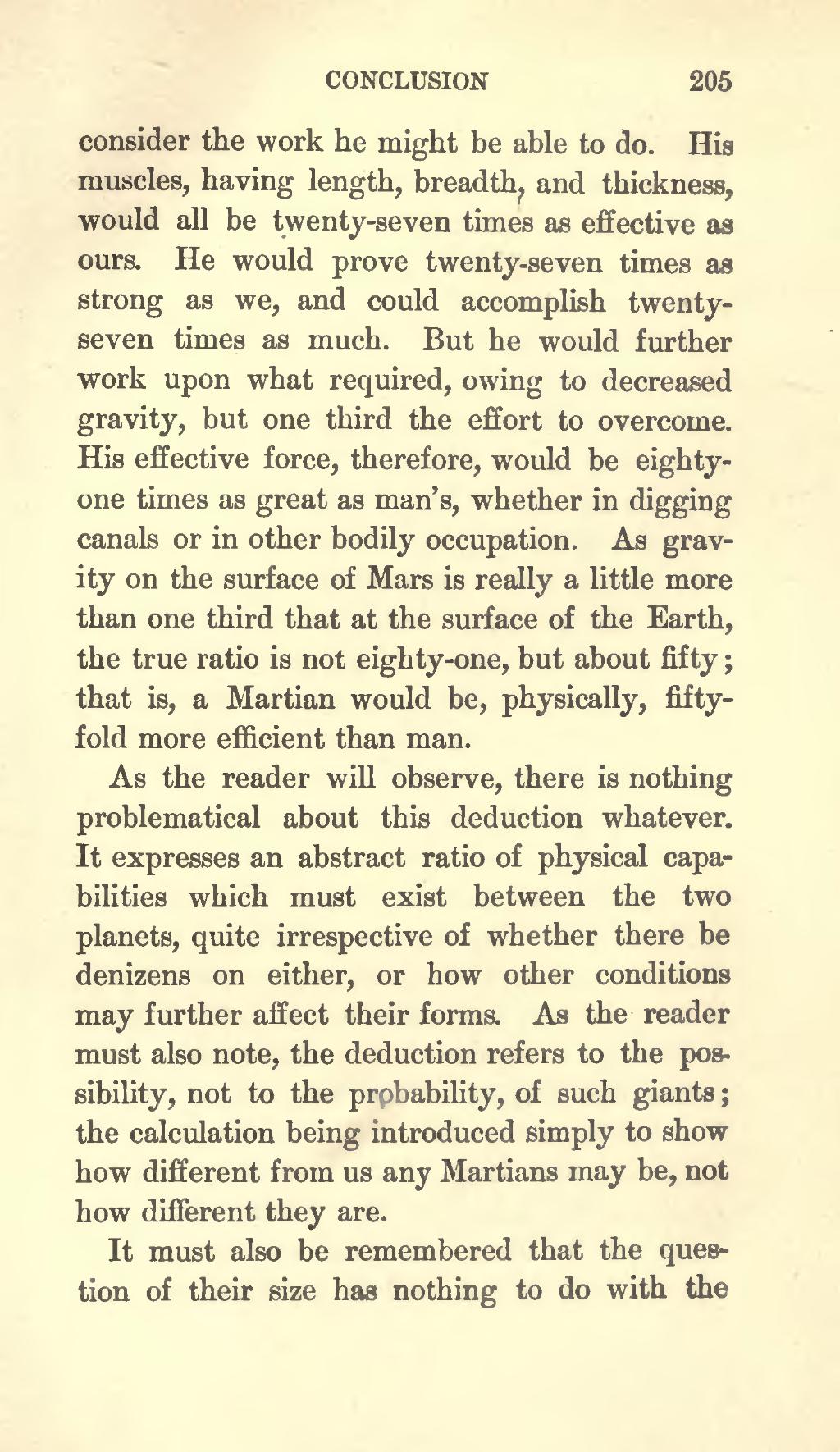consider the work he might be able to do. His muscles, having length, breadth, and thickness, would all be twenty-seven times as effective as ours. He would prove twenty-seven times as strong as we, and could accomplish twenty-seven times as much. But he would further work upon what required, owing to decreased gravity, but one third the effort to overcome. His effective force, therefore, would be eighty-one times as great as man's, whether in digging canals or in other bodily occupation. As gravity on the surface of Mars is really a little more than one third that at the surface of the Earth, the true ratio is not eighty-one, but about fifty; that is, a Martian would be, physically, fifty-fold more efficient than man.
As the reader will observe, there is nothing problematical about this deduction whatever. It expresses an abstract ratio of physical capabilities which must exist between the two planets, quite irrespective of whether there be denizens on either, or how other conditions may further affect their forms. As the reader must also note, the deduction refers to the possibility, not to the probability, of such giants; the calculation being introduced simply to show how different from us any Martians may be, not how different they are.
It must also be remembered that the question of their size has nothing to do with the
